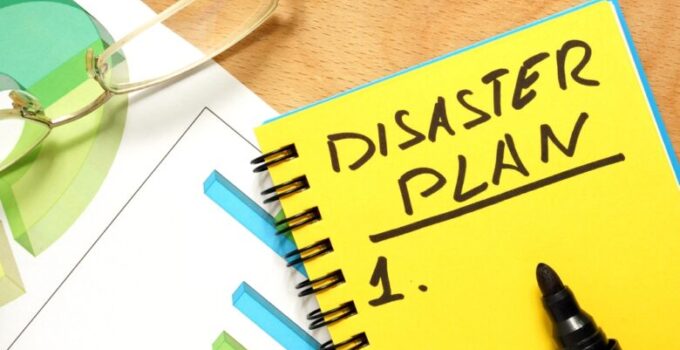Disaster may fall upon any business and all companies should be prepared for that. Whether it’s a fire, a flood, earthquake, or something else, you need a proper Disaster Recovery Plan in order to save your business. The statistic isn’t encouraging as around 50 percent of businesses manage to get out of the disaster and continue their work. Becoming a victim of a natural disaster isn’t impossible, but getting out of it unhurt is doable. You just need a good Business Continuity Plan and a Disaster Recovery Plan.
While the Business Continuity Plan will allow your business to continue to operate despite the damage, the Disaster Recovery Plan is there to help businesses repair the damage that’s been done. DRP is defined as a set of actions to be taken before, during, and after the disaster in order to prevent the business from being destroyed.

Img source: theamegroup.com
Businesses need experienced and knowledgeable experts that will be able to predict possible disasters, develop a plan, and keep the business running. Hiring such experts is of utmost importance for numerous businesses, but some, mostly small and medium-sized businesses decide to outsource those services. It’s often cheaper and the company will save a lot of time and money that would usually be spent on looking for, training, and paying the in-house experts. As BC Networks explains, a full-time Chief Information Officer, or the CIO, is often too costly for businesses that have less than 200 employees.
Reducing the downtime is crucial as over 50 percent of businesses can only handle around an hour of downtime without significant financial damage. Everything over one hour can cost the businesses a lot of money. Not to speak about the damage to the reputation among partners and customers and the loss of potentially sensitive and crucial info and data. Recovery time should be as short as possible, businesses should improve their security, prevent any potential legal liability, and absolutely avoid making any potentially damaging decisions made in the last second due to lack of the proper plan.

Img source: servercloudcanada.com
A good Disaster Recovery Plan means having properly marked exit points and being familiar with all of the safety drills, but it also means having a data backup ready and having a clear, detailed plan to assist your employees and sustain the business.
The benefits of having a good Disaster Recovery Plan are probably pretty clear by now. It’s all about mitigating the risks, minimizing downtime, protecting the data, and save yourself a lot of time and money. Not having a plan, on the other hand, means losing money, and above all, it means ruining your reputation among your partners and customers. Losing sensitive data will make you seem irresponsible and untrustworthy. The reputation you’ve built, the trust you’ve won, it’s all going to be lost if you are unable to recover after a disaster and you lose precious data. In case your clients’ records aren’t safe and protected, you’re going to be in big trouble.




